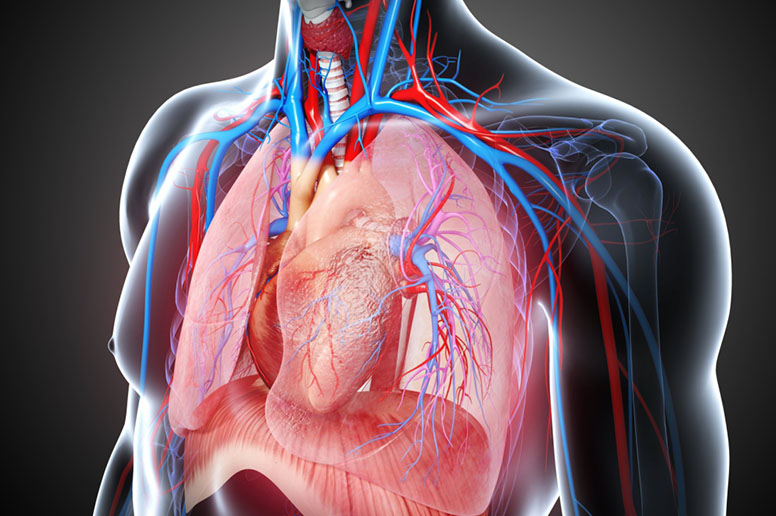Dr. Shilpa Gandhi | Leading Consultant Minimally Invasive Thoracic Surgeon In Nagpur
Meet Our Doctor
Dr. Shilpa Gandhi
MBBS, DNB General Surgery DNB Thoracic Surgery
Dr. Shilpa Gandhi is a trusted and experienced healthcare professional known for her compassionate care and expertise. Committed to delivering personalized treatments and improving patient well-being.


Follow-Up Care For Thoracic Surgery Patients
Follow-up care for thoracic surgery patients is a crucial aspect of the recovery journey. After undergoing surgery on the lungs, esophagus, or chest, regular follow-ups ensure proper healing, detect complications early, and help patients regain their quality of life. This guide explains what thoracic surgery patients can expect during follow-up care and the steps to achieve a smooth recovery.
Why Follow-Up Care is Important for Thoracic Surgery Patients
Thoracic surgery involves sensitive areas of the chest, which are vital for breathing and overall health. Proper follow-up care helps:
- Monitor surgical site healing and reduce the risk of infections or complications.
- Assess lung function and detect issues like fluid buildup or pneumonia.
- Ensure that patients adjust to lifestyle changes and regain strength over time.
- Address chronic pain, breathing difficulties, or other post-operative concerns.
Key Components of Follow-Up Care for Thoracic Surgery Patients
1. Regular Post-Operative Appointments
Patients will typically have scheduled follow-up visits with their thoracic surgeon or healthcare provider.
- First Follow-Up: Usually 1–2 weeks after surgery to check incision healing, remove stitches, or address early concerns.
- Subsequent Visits: Additional appointments every few weeks or months to assess progress, manage medications, and address long-term recovery needs.
2. Imaging Tests
- Chest X-rays or CT Scans: These are often performed during follow-ups to evaluate lung health, rule out complications, and confirm the success of the procedure.
- Lung Function Tests: Patients may undergo pulmonary function tests to monitor breathing capacity and assess recovery.
Why Consult a Thoracic Surgery Specialist?
You should consult a thoracic surgery specialist if you’re experiencing symptoms such as:
- Persistent chest pain or discomfort
- Difficulty breathing or shortness of breath
- Chronic cough or coughing up blood
- Trouble swallowing or unexplained weight loss
- Abnormal chest X-ray or CT scan results
Benefits of Choosing a Thoracic Surgery Specialist
A thoracic surgery specialist brings advanced knowledge, skill, and technology to the treatment of chest conditions. Benefits of working with these specialists include:
- Comprehensive Care: From diagnosis to post-surgical recovery, they provide personalized treatment.
- Minimally Invasive Options: Faster recovery, less pain, and smaller scars with techniques like VATS and robotic surgery.
- Multidisciplinary Approach: Collaboration with pulmonologists, oncologists, and other specialists for the best outcomes.
Conditions Treated by a Thoracic Surgery Specialist
A thoracic surgery specialist treats various chest and lung conditions, including:
- Lung Cancer
- Esophageal Cancer
- Pleural Diseases
- Collapsed Lung (Pneumothorax)
- Chest Trauma
- Diaphragmatic Hernias
What Is a Thoracic Surgery Specialist?
A Thoracic Surgery Specialist is a medical professional who focuses on surgical procedures involving the organs and tissues inside the thoracic cavity. These include the lungs, esophagus, trachea, diaphragm, or chest wall. These specialists often collaborate with pulmonologists, oncologists, and other healthcare providers to ensure comprehensive care for their patients.
Why Choose a Thoracic Surgery Specialist?
Thoracic surgery involves treating life-altering and potentially life-threatening conditions. A Thoracic Surgery Specialist provides:
- Expert Diagnosis: Accurate assessment of thoracic conditions using advanced imaging and diagnostic tools.
- Cutting-Edge Treatments: Minimally invasive techniques like video-assisted thoracoscopic surgery (VATS) and robotic surgery for better outcomes.
- Specialized Care: Expertise in handling complex cases, including lung cancer, esophageal cancer, and chest trauma.
Benefits of Minimally Invasive Thoracic Surgery
Modern thoracic surgery techniques, such as VATS and robotic-assisted surgery, have revolutionized patient care. Benefits include:
- Reduced Pain and Scarring: Smaller incisions lead to less post-operative discomfort.
- Shorter Recovery Time: Patients can return to daily activities more quickly.
- Lower Risk of Complications: Minimally invasive techniques reduce the chance of infection and other risks.



